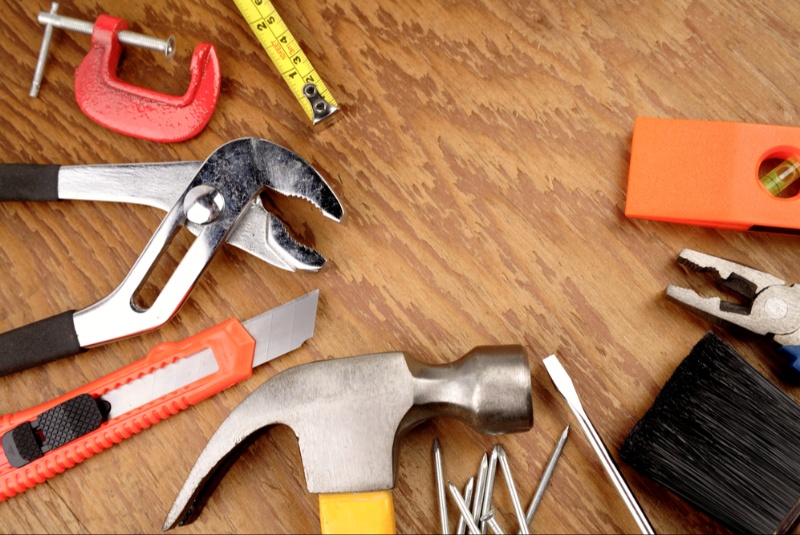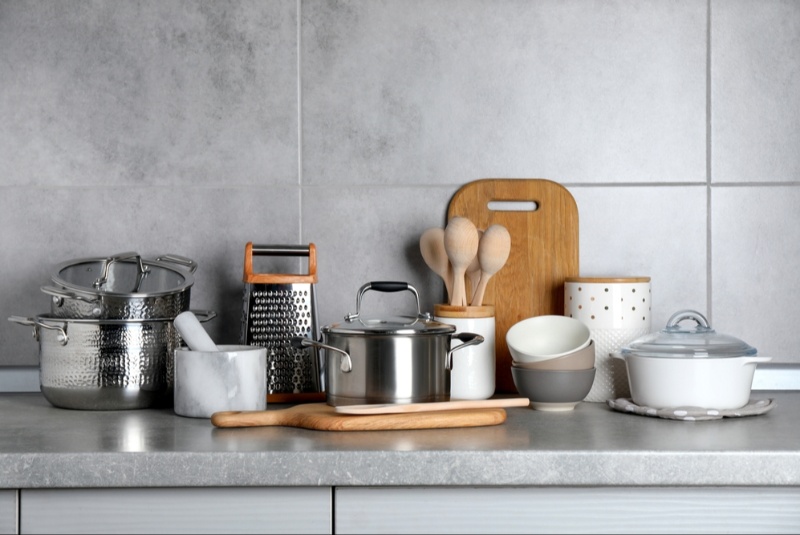In a world of ever-increasing convenience and service availability, the art of Do-it-Yourself (DIY) can sometimes feel a bit antiquated. However, the DIY spirit is much more than a relic of the past; it is a thriving community of individuals who find satisfaction and a sense of accomplishment in creating and repairing things with their own two hands. Embracing DIY projects not only fosters creativity and self-reliance but can also lead to financial savings and an eco-friendly lifestyle. Let’s delve into the reasons why learning to fix things yourself is a journey worth embarking on.
A Renaissance of Self-Sufficiency
There’s an undeniable joy in becoming a problem-solver in your own life. In the face of a broken gadget or a furniture piece showing signs of wear, opting to repair rather than replace can be a delightful return to self-sufficiency. Understanding the basics of how things work and developing the skills to fix them fosters a deep-seated confidence and a renewed perspective on the value of objects in our lives.
Every time you successfully mend a broken item or build something from scratch, you reaffirm your ability to take control of your surroundings. This sense of self-sufficiency can permeate into various aspects of life, from home maintenance to problem-solving at work. It's a liberating feeling to know that you can tackle a wide range of challenges with your own skills and resourcefulness.
The Economic Advantage
Embarking on a DIY project usually entails a financial saving, as service charges and labor costs are taken out of the equation. Furthermore, honing your DIY skills can transform discarded materials into useful tools or decor items, curating unique pieces that won’t break the bank. It can also extend the life of various products, delaying the need for replacement purchases and hence, safeguarding your wallet.
For instance, instead of buying new furniture, you can repurpose or refurbish existing pieces to match your evolving style. A coat of paint, new upholstery, or creative modifications can breathe new life into old furniture, saving you the expense of purchasing entirely new items.
Eco-Friendly Lifestyle
By repairing things yourself, you contribute to a reduction in waste, which is pivotal in battling the modern-day issues of pollution and environmental degradation. Reusing and recycling materials in DIY projects can create a ripple effect of positive environmental impacts, fostering a lifestyle that is much more in harmony with the earth and its resources.
When you choose to repair or repurpose items rather than disposing of them, you reduce the burden on landfills and minimize the carbon footprint associated with manufacturing new products. This eco-friendly approach aligns with a growing global awareness of the importance of sustainable living.
Creative Outlets and Mental Health
Engaging in DIY projects is not just a practical endeavor; it is a fruitful ground for nurturing creativity. Turning a vision into a reality through crafting or renovating can be a therapeutic outlet, providing a sense of achievement and an escape from daily stresses. Many find that working with their hands helps to calm their minds, offering a productive break from screen time and fostering mental well-being.
Whether you're painting a canvas, crafting handmade decorations, or building custom furniture, the act of creating allows you to express yourself and tap into your artistic side. It's a form of self-expression that brings a deep sense of satisfaction and accomplishment.

Community and Shared Knowledge
The DIY community is a vibrant and sharing one. Through online forums, workshops, and social media platforms, individuals can connect, share experiences, and learn from others. This sense of community can be incredibly fulfilling, bringing together people from various backgrounds united by a common interest and a spirit of helpfulness.
Online communities, such as DIY forums and social media groups, offer a platform for individuals to showcase their projects, seek advice, and share their knowledge with others. It's a space where you can learn from experienced DIY enthusiasts, discover new techniques, and receive guidance on tackling challenging projects.
Educational for Young Minds
Incorporating DIY approaches in your household can be an educational experience for young ones, teaching them the value of self-sufficiency and critical thinking from an early age. It fosters a ‘can-do’ attitude, instilling the belief that with effort and perseverance, they can solve problems and create beautiful things.
Involving children in DIY activities not only nurtures their creativity but also enhances their problem-solving skills and provides a hands-on learning experience. From simple craft projects to more complex tasks like building a birdhouse, DIY projects offer valuable lessons that can benefit children throughout their lives.
Safety First
As you embrace the DIY spirit, it is important to remember to prioritize safety. Ensure that you are using the right tools for the job and that you are well-versed in their usage to prevent accidents. It is always better to seek professional help for tasks that are beyond your skill level to maintain a safe environment.
Safety should be a top priority in all DIY endeavors. Before beginning any project, familiarize yourself with the necessary safety precautions and use appropriate protective gear when required. DIY can be immensely rewarding, but it's essential to prioritize your well-being and the safety of those around you.
Getting Started
Embarking on the DIY path does not require a huge initial investment. Start with small projects that require minimal tools and gradually build up your skill set and toolkit. There are a plethora of resources available online, including tutorials and step-by-step guides, to help you get started.
If you're new to DIY, start with simple and manageable projects that align with your interests and skill level. For instance, you can begin with tasks like painting a room, assembling furniture from a kit, or creating custom artwork. These projects allow you to familiarize yourself with basic tools and techniques while gradually building your confidence.
Embracing DIY projects comes with a host of benefits that extend beyond just saving money. It fosters creativity, environmental consciousness, and community ties. Moreover, it empowers individuals with the confidence that they are capable of fixing things themselves, nurturing a generation that values the art of craftsmanship and the joy of creation. It’s time to roll up those sleeves and start learning to fix things yourself; the rewards are manifold and deeply fulfilling.
In a world that often emphasizes convenience and consumption, the DIY spirit serves as a reminder of the intrinsic value of self-sufficiency and the satisfaction of creating and repairing with one's own hands. So, whether you're crafting, renovating, or simply fixing a household item, remember that every DIY project you undertake is a step towards a more self-reliant, creative, and environmentally conscious way of life. It's a journey filled with endless rewards and a deep sense of fulfillment.




